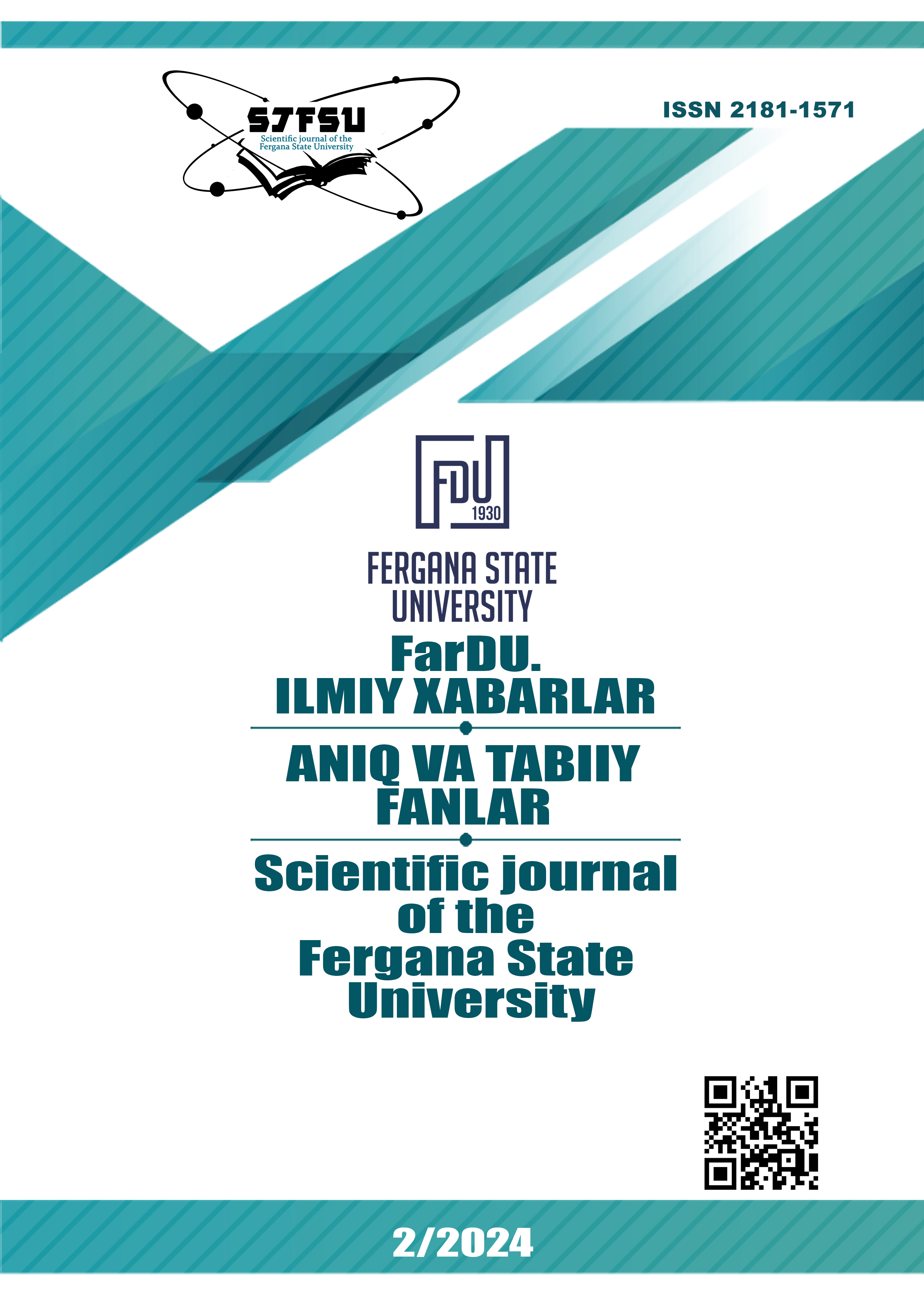CHARACTERISTICS OF VERBAL, NONVERBAL AND LINGUISTIC ATTRIBUTES OF THE SPEECH GENRE OF GRATITUDE
Keywords:
gratitude, verbal means,non-verbal means, linguistic attributes, text structure.Abstract
This article examines the specifics of the verbal, non-verbal and linguistic attributes of the speech genre of expressing gratitude. At the same time, such features as the specifics of oral and written speech in the textual compositional structure of expressing gratitude, dialogic and monological, individual and collective features are highlighted. The national and cultural features of the verbal, non-verbal and linguistic attributes of the gratitude speech genre are highlighted.
References
Muhammad Ahmad, Ali Raza Siddiqu, Muhammad Mushtaq. Genre Analysis of Acknowledgement Texts by Pakistani Master Level Theses Writers. Linguistic Forum - A Journal of Linguistics
Zhao, M. & Jiang, Y. (2010). Dissertation acknowledgement:Generic structure and linguistic features.Chinese Journal of Applied Linguistics, 33(1), 94-109;
Williams, M. (2018). Thesis acknowledgement & dissertation dedication help.Retrieved February 8, 2019 from https://www.essaytown.com/writing/thesis-acknowledgment-dissertation-dedication
Ang, W. (2012). Comparison of gratitude across context variations: A generic analysis of dissertation acknowledgements written by Taiwanese authors in EFL and ESL contexts.International Journal of Applied Linguistics and English Literature,1(5), 130-146. doi: http://dx.doi.org/10.7575/ijalel.v.1n.5p.130
Ahmad, M., Ismail, M. K. A.,& Aqeel, M. (2018). Genre based analysis of acknowledgement texts written by Pakistani writers.European Online Journal of Natural and Social Sciences,7(3), pp 594-604
Al-Ali, M. N. (2006). Conveying academic and social identity in graduate dissertation acknowledgments. Fifth International Conference of European Association of Language forSpecific Purposes(pp. 35-42)
Zaragoza, Spain.Al-Ali, M. N. (2010). Generic patterns and socio-cultural resources in acknowledgements accompanying Arabic PhD dissertations. Pragmatics, 20(1), 1-26.doi: https://doi.org/10.1075/prag.20.1.01ali
Behnam, B., & Golpour, F. (2014). A genre analysis of English and Iranian research articles abstracts in Journal of Anthropological Research, 43(1), 63-84.doi:https://doi.org/10.1086/jar.43.1.3630467
Caesar, T. (1995). On acknowledgements. New Orleans Review, 19(1), 85-94; Cheng, S. W. (2012). A contrastive study of master thesis acknowledgements by Taiwanese and North American students. Open Journal of Modern Linguistics, 2(1), 8-17
Cheng, W.,& Kuo,C. (2011). A pragmatics analysis of MA thesis acknowledgements. Asian ESP Journal, 7(3), 29-58
Downloads
Published
Issue
Section
License
Copyright (c) 2024 Scientific journal of the Fergana State University

This work is licensed under a Creative Commons Attribution-NonCommercial-NoDerivatives 4.0 International License.
How to Cite
Most read articles by the same author(s)
- , LINGUISTIC FEATURES OF THE SPEECH GENRE “GRATITUDE” , Scientific journal of the Fergana State University: No. 1 (2024): FarDU.Ilmiy xabarlar jurnali (Aniq va tabiiy fanlar)

